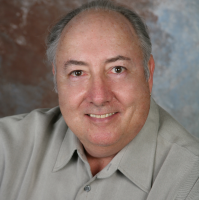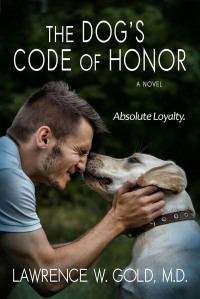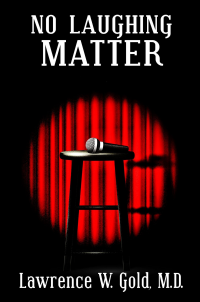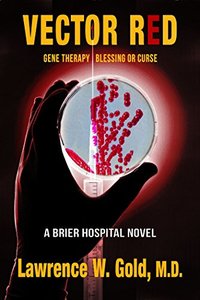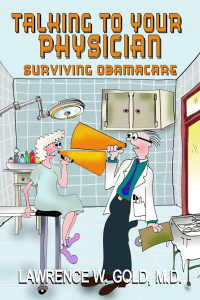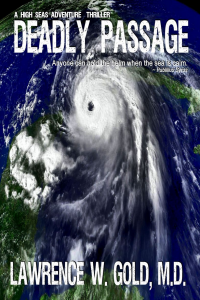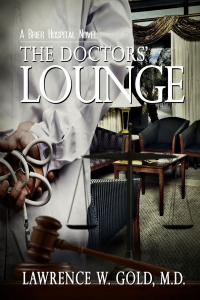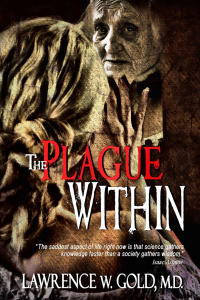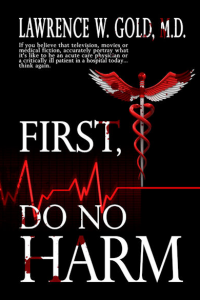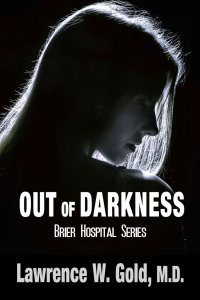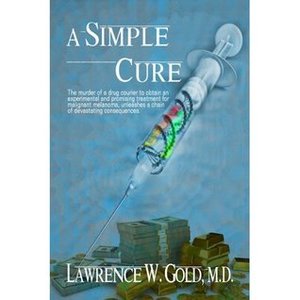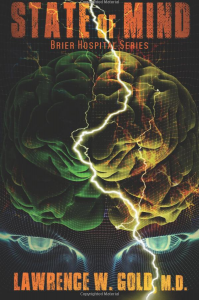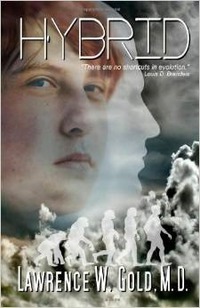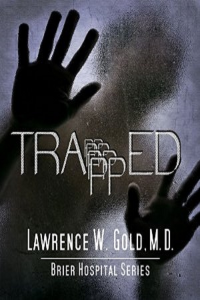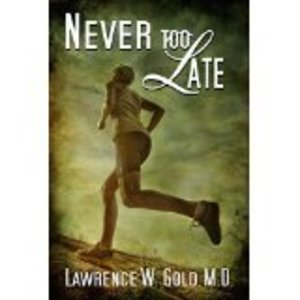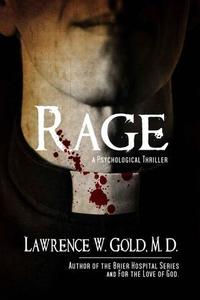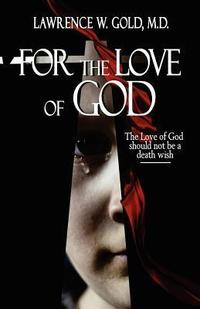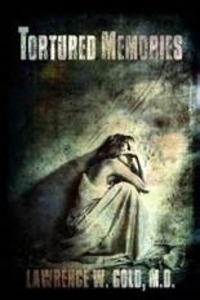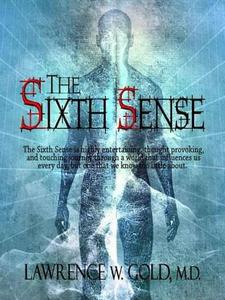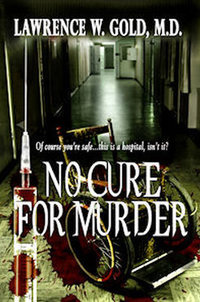Genre:
Thriller Suspense Mystery Action & Adventure Horror- Country: United States
- Books: 19
- Profession: retired physician/long distance cruiser/ author
- Born: 16 May, 1939
- Member Since: Jan 2016
- Profile Views: 29,040
- Followers: 171
- VISIT AUTHOR: Website, Facebook, Twitter, Goodreads, Amazon,
Lawrence W. Gold, MD is a retired physician. He is a veteran of the Vietnam War where he served in an evacuation hospital, ran an emergency room and was a Battalion Surgeon. He completed his training in internal medicine and diseases of the kidney in 1968.
He retired in 1995 after 23 years in a hospital-based practice caring for patients with complicated illnesses and served as Chief of Medicine. After retirement he and his wife, Doris, spent time sailing at sea. He has written three screenplays based on his novels. His screenplay for Rage won honorable mention at the 80th annu... al Writer's Digest contest. He lives in Grass Valley, CA with his wife.
read more
Lawrence W. Gold, M.D.'s Books
Stay in the loop on books by Lawrence W. Gold, M.D.. See upcoming and best-selling books by the author here. You'll also find the deals on books by Lawrence W. Gold, M.D..
** Please note that the information or price displayed here may not be the updated. Make sure to double-check the latest book price before buying books.
** Also, there might be other books by Lawrence W. Gold, M.D. not listed on AllAuthor.
| Book |
|---|
The Dog's Code of Honor: Absolute Loyaltyby Lawrence GoldPublish: May 01, 2023Crime Fiction Thriller Mystery Action & Adventure |
No Laughing Matterby Lawrence W GoldPublish: Jan 29, 2022Series: Brier Hospital SeriesThriller Mystery Contemporary Romance |
Vector Red: Epidemic of Genetically Altered Bacteria (Brier Hospital Book 12)by Lawrence GoldPublish: Dec 19, 2016Thriller Suspense Mystery Science Fiction |
The Plague Withinby Lawrence W. GoldSeries: Brier Hospital SeriesThriller Suspense Mystery Women's Fiction |
State of Mindby Lawrence W. GoldSeries: Brier Hospital SeriesCrime Fiction Thriller Suspense Mystery |
Hybrid (Brier Hospital, #7)by Lawrence W. GoldPublish: Apr 16, 2014Series: Brier Hospital SeriesThriller Suspense Mystery |
Tortured Memory (Brier Hospital #4)by Lawrence W. GoldPublish: Feb 13, 2013Thriller Suspense Mystery |
The Sixth Sense (Brier Hospital, #3)by Lawrence W. GoldPublish: Jul 31, 2012Series: Brier Hospital SeriesThriller Suspense Mystery |
No Cure For Murderby Lawrence W. GoldPublish: Dec 16, 2011Series: Brier Hospital SeriesThriller Suspense Mystery |
Lawrence W. Gold, M.D. Interview On 28, Nov 2023
 "Lawrence W. Gold, MD, a retired physician and Vietnam War veteran, served in an evacuation hospital and as a Battalion Surgeon. Chief of Medicine for 23 years, he's also a prolific author and screenwriter, residing in Grass Valley, CA, with his wife."
"Lawrence W. Gold, MD, a retired physician and Vietnam War veteran, served in an evacuation hospital and as a Battalion Surgeon. Chief of Medicine for 23 years, he's also a prolific author and screenwriter, residing in Grass Valley, CA, with his wife."
Most physicians choose medicine as a reflection of their altruism and optimism. The Viet Nam war served to destroy both. As a physician some eight years older than most soldiers serving at that time and with more experience in life, I stood apart from most of the soldiers I served and while we both faced the reality of war, their experiences were far more destructive and depressing than mine as a physician.
Your medical career spanned over two decades. What were some of the most memorable and challenging cases you encountered during that time?Nephrology, by its nature, deals with severe illnesses. Despite being well-trained, my limitations readily clarify themselves. My most gratifying case involved a young woman with Lupus, an autoimmune disease with kidney failure, and innumerable compilations who went on to survive. I didn’t matter if her survival was based on my/our luck or my skill. It only mattered that she did well. Either way, it didn’t or doesn’t matter for with severe illness, where good outcomes are rare, we celebrate them. The worst moments are when patients with whom you have long-term relationship suddenly and inexplicably die. It’s the equivalent of losing a family member or a child.
You specialized in internal medicine and diseases of the kidney. What motivated you to pursue these particular fields of medicine?Both Internal Medicine and Nephrology are demanding specialties that suited my personal needs. In addition, both specialties were in demand at the time and who’s willing to deny themselves the potential for success.
After retiring from medicine, you transitioned to a career as a writer. What inspired this change, and how did you get started with writing?Anyone who has lived a life filled with drama feels the need to share those experience with others. Writing about those experiences in the quiet moments between writer and computer allowed me to fully recognize the significance of my experiences and develop the techniques to share them in a useful way. For me, creating stories without in depth reflection tells only a fraction of the experience.
Could you share some details about your novels and screenplays? What themes and topics do you explore in your works, and how do they reflect your experiences?I tend to write about things that “piss me off” and I love to extrapolate in science and medicine on discoveries that reflect on both the good and the bad. If you’re indifferent about your subject material, great writing skills won’t help.
Your screenplay for "Rage" won honorable mention at the 80th annual Writer's Digest contest. Can you tell us more about this screenplay and what it means to you?Rage, the novel and screenplay reflects on the presence of evil in our culture and the vulnerability of the human condition. It proves that it’s better to be lucky than smart.
How do you balance your life as a writer with your personal life and experiences, such as sailing with your wife?Besides stark reality, sailing is best characterized by the quote: The average sailor wakes up each morning with nothing to do, and by noon he’s three hours behind. Sailing was a great experience for Dorlis and me, but it left little time to ruminate over life’s experiences. For me, writing takes time. A true test of any relationship is the ability to spend time in a small space with another person and enjoying it. After sailing for years, we now enjoy the tight spaces associated with land cruising (RVing).
Grass Valley, CA, is known for its natural beauty. Has your environment influenced your writing in any way?I’m sitting at my desk before a large picture window with a view of our own forest. Visitors come every day mostly deer and squirrels but include birds of every variety, racoons, and the occasional predator.
As a veteran and former Battalion Surgeon, what insights do you bring to your writing, particularly when it comes to themes related to war and its impact on individuals and society?Humans, at least ones of our generation, aren’t made for war. The impact on soldiers and the culture as a whole is devastating. The number and severity of PTSD and other forms of mental illness proves this point.
How has the combination of your medical background and your writing career shaped your perspective on the story of the book, “Vector Red”?Vector Red is a good example of “the best laid plans” going awry despite how intelligent we have become or think we’ve become. Nature, it seems, always has the last word.
Can you share some personal anecdotes or experiences that have left a lasting impression on your book, “Talking To Your Physician”?While friends, relatives, and acquaintances are often comfortable enough to share their medical experiences, that reminds me, repeatedly, how poorly the medical profession does in educating patients about their health and the diseases that afflict them. Paternalism in medicine has become an obscenity in popular culture and patients are now suffering from objectivity without caring. Old Dr. Kildare and his paternalism at one time, had great value and a place in medical practice…not so much now.
What advice do you have for aspiring writers who are looking to embark on a new career later in life, as you did?Be brave. Be optimistic and don’t let cynicism or wrong-headed thinking stand in your way. Learn and apply writing basics. The world is filled with naysayers, don’t become one.
What does writing mean to you, and how has it enriched your life in retirement?Writing, meaning being creative, may be the best thing I can do with what few brain cells I have left. I love creative writing as it challenges me, makes me smile, and on occasion, laugh out loud.
Do you have any upcoming projects or books that your readers can look forward to?I keep a list of ideas for future novels. I’ve used many and they have changed over time as I and life has continued to change. If you have a good idea, don’t lose it. Write it down. Be careful of your subject matter as it relates to your audience. Don’t indulge yourself; indulge your readers. I’m currently working on a novel of a brilliant young physician who fraudulently entered medical practice at the University of California without any medical training. A physician imposter.
What do you think of AllAuthor? Has this website been helpful to you?AllAuthor offers many opportunities for enrichment. I wish I had more time and energy to participate in more of them.
Ask Lawrence W. Gold, M.D. a Question
Have brimming questions to ask author Lawrence W. Gold, M.D.? Ask whatever you like, but keep it appropriate.
** Please note that unanswered questions will not appear on the page. Refrain from posting promotional messages.
